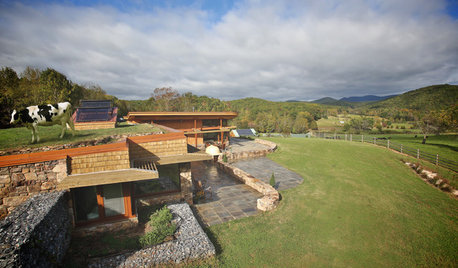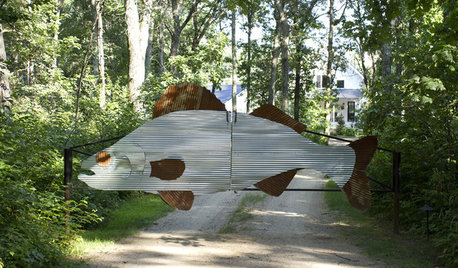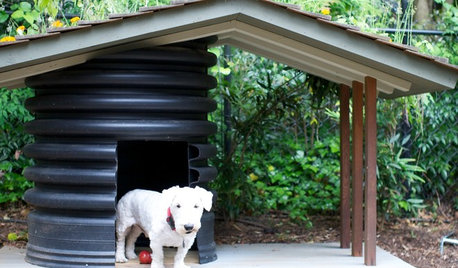Melons, Poop, and the Cows That Make It
Creativeguy_z6_CT
10 years ago
Related Stories

GARDENING GUIDESThe Poop Scoop: Enrich Your Soil With Good Old Manure
Get over the ick factor already — this natural super-ingredient for soil has so many benefits, you'll wonder why you ever went chemical
Full Story
GARDENING FOR BUTTERFLIES3 Ways Native Plants Make Gardening So Much Better
You probably know about the lower maintenance. But native plants' other benefits go far beyond a little less watering and weeding
Full Story
HOUZZ TOURSHouzz Tour: A Self-Sufficient Farmhouse With a Sheep-Pasture Roof
LEED Platinum certification and a soil-covered top make this pastoral Virginia home green in more ways than one
Full Story
FUN HOUZZ11 Ways to Have More Fun at Home
Every house needs a touch of humor — a funny sign or an accessory that always makes you smile. Here’s where to begin
Full Story
BATHROOM DESIGNPowder Room Essentials to Keep Guests Happy
Set out these bathroom necessities (hello, hand towels) to make your company comfortable and your parties run smoothly
Full Story
DECKSTake It Outside! Inspiring Ideas for Outdoor Dining
Make fresh-air meals as comfortable and genteel as those indoors — and maybe even a bit magical
Full Story
EDIBLE GARDENSGarden BFFs? Why Your Vegetables Are Begging for Companion Plants
Foster friendships among plants for protection from pests, pollination support and color camaraderie
Full Story
DECLUTTERINGDecorate with Intention: Clutter Clearing 101
Fearlessly face disorganized areas to find the home of your dreams
Full Story
FUN HOUZZ16 Creative Paint Color Names We Haven't Seen — Yet
Someday, the namers of new paint colors will finally run out of ideas. We're here to help
Full Story
PETSHow to Help Your Dog Be a Good Neighbor
Good fences certainly help, but be sure to introduce your pup to the neighbors and check in from time to time
Full StoryMore Discussions






barrie2m_(6a, central PA)
rayrose
Related Professionals
Maple Valley Landscape Architects & Landscape Designers · New Mexico Landscape Architects & Landscape Designers · Williamsburg Landscape Contractors · Belmont Landscape Contractors · Brookfield Landscape Contractors · Brookline Landscape Contractors · Dallas Landscape Contractors · Hannibal Landscape Contractors · Inglewood Landscape Contractors · Matteson Landscape Contractors · Norristown Landscape Contractors · Paterson Landscape Contractors · Tigard Landscape Contractors · Canton Driveway Installation & Maintenance · Thornton Driveway Installation & Maintenancebus_driver
sunnibel7 Md 7
theforgottenone1013 (SE MI zone 5b/6a)
digdirt2
Creativeguy_z6_CTOriginal Author
glib
mckenziek